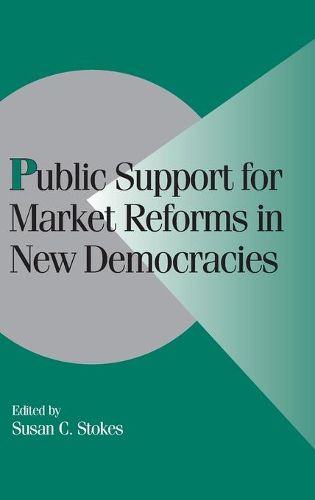Readings Newsletter
Become a Readings Member to make your shopping experience even easier.
Sign in or sign up for free!
You’re not far away from qualifying for FREE standard shipping within Australia
You’ve qualified for FREE standard shipping within Australia
The cart is loading…






Do people in new democracies that are undergoing market reforms turn against these reforms when the economic adjustment is painful? The conventional wisdom is that they will. According to economic voting models, citizens punish elected governments for bad economic performance. The contributors to this collection, in contrast, begin with the insight that citizens in new democracies may have good reasons to depart from the predictions of economic voting. They use state-of-the-art statistical techniques to analyze changes in aggregate support levels, as reflected in public opinion polls, in response to changes in inflation, unemployment, production, and wages. They find that public opinion of reforms does not always conform to the expectations of the economic voting model.
$9.00 standard shipping within Australia
FREE standard shipping within Australia for orders over $100.00
Express & International shipping calculated at checkout
Stock availability can be subject to change without notice. We recommend calling the shop or contacting our online team to check availability of low stock items. Please see our Shopping Online page for more details.
Do people in new democracies that are undergoing market reforms turn against these reforms when the economic adjustment is painful? The conventional wisdom is that they will. According to economic voting models, citizens punish elected governments for bad economic performance. The contributors to this collection, in contrast, begin with the insight that citizens in new democracies may have good reasons to depart from the predictions of economic voting. They use state-of-the-art statistical techniques to analyze changes in aggregate support levels, as reflected in public opinion polls, in response to changes in inflation, unemployment, production, and wages. They find that public opinion of reforms does not always conform to the expectations of the economic voting model.